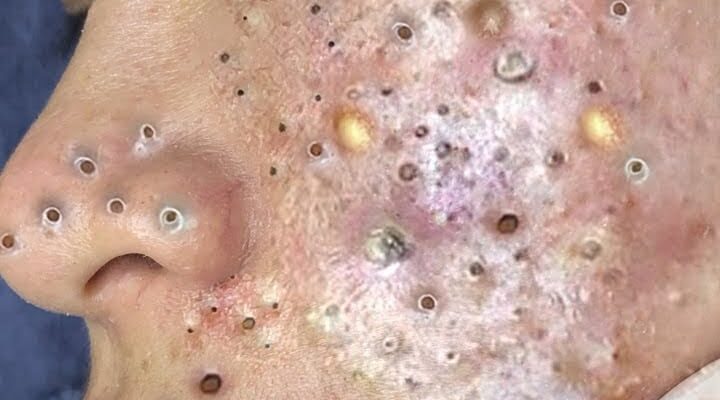You may have adult acne if you have a genetic predisposition, changing hormone levels, certain bacteria, or irritation from skin or hair products. Treatment typically depends on the cause.
Acne is often associated with teenage years, a hallmark of puberty that’s supposed to fade as we transition into adulthood. But for many, the battle with breakouts doesn’t end when high school does. If you’re still struggling with acne well into your 20s, 30s, or beyond, you’re not alone. Adult acne is a common issue, affecting up to 15% of women and 7% of men. But why does it persist, and what can be done?
The Causes of Adult Acne
Acne isn’t just about greasy skin and clogged pores. It’s a complex condition influenced by a range of factors, many of which extend beyond the hormonal surges of puberty.
- Hormonal Imbalances: Hormones remain a leading culprit. Fluctuations in androgen levels can stimulate oil glands, leading to clogged pores and breakouts. Women may notice flare-ups around their menstrual cycle, during pregnancy, or due to conditions like polycystic ovary syndrome (PCOS).
- Stress: Life’s pressures can wreak havoc on your skin. Stress triggers the release of cortisol, a hormone that increases oil production and inflammation, both of which can contribute to acne.
- Diet: While the relationship between diet and acne is debated, certain foods may exacerbate breakouts. High-glycemic foods, such as white bread and sugary snacks, can spike insulin levels and indirectly stimulate oil production. Dairy products have also been linked to acne in some individuals.
- Skincare and Cosmetics: Using the wrong products for your skin type can clog pores and worsen acne. Look for non-comedogenic, oil-free products to minimize the risk of breakouts.
- Environmental Factors: Pollution, humidity, and even masks (maskne, anyone?) can trap dirt and bacteria against the skin, leading to inflammation.
- Underlying Medical Issues: In rare cases, persistent acne can signal an underlying condition like hormonal disorders or chronic inflammation.
How to Manage and Treat Adult Acne
The good news is that adult acne is manageable with the right approach.
- Adopt a Consistent Skincare Routine:
- Cleanse Gently: Wash your face twice a day with a mild cleanser to remove dirt and oil. Avoid over-scrubbing, which can irritate the skin.
- Moisturize: Even oily skin needs hydration. Use a lightweight, oil-free moisturizer to maintain balance.
- Target Breakouts: Ingredients like salicylic acid, benzoyl peroxide, and retinoids can help unclog pores and reduce inflammation.
- Consider Professional Treatments:
- Prescription Medications: A dermatologist might recommend topical or oral medications, such as retinoids, antibiotics, or hormonal treatments like birth control pills or spironolactone.
- Procedures: Chemical peels, laser therapy, and microneedling are advanced treatments that can improve stubborn acne and scarring.
- Reevaluate Your Diet: While everyone’s skin reacts differently, cutting back on sugar, processed foods, and dairy might help reduce breakouts. Incorporate anti-inflammatory foods like leafy greens, nuts, and omega-3-rich fish into your meals.
- Manage Stress: Practices like yoga, meditation, and regular exercise can reduce stress levels, benefiting your skin and overall health.
- Identify Triggers: Keep a journal to track potential acne triggers, such as specific foods, skincare products, or lifestyle changes.
The Emotional Toll of Adult Acne
Dealing with acne as an adult can be frustrating and impact your confidence. It’s not just about aesthetics; persistent breakouts can lead to feelings of embarrassment or self-doubt. If acne affects your mental health, consider seeking support from a counselor or support group. Remember, you’re not defined by your skin.
When to See a Dermatologist
If over-the-counter treatments aren’t effective or if your acne is severe, it’s time to consult a professional. Dermatologists can customize treatments to address the root causes of your acne and help you achieve clearer skin.
Takeaway
Acne is a persistent condition for many adults, but it doesn’t have to be a permanent one. Understanding the causes and adopting a targeted approach to skincare, lifestyle, and medical treatments can help you regain control. Be patient with the process and remember—you’re far from alone in this journey.

